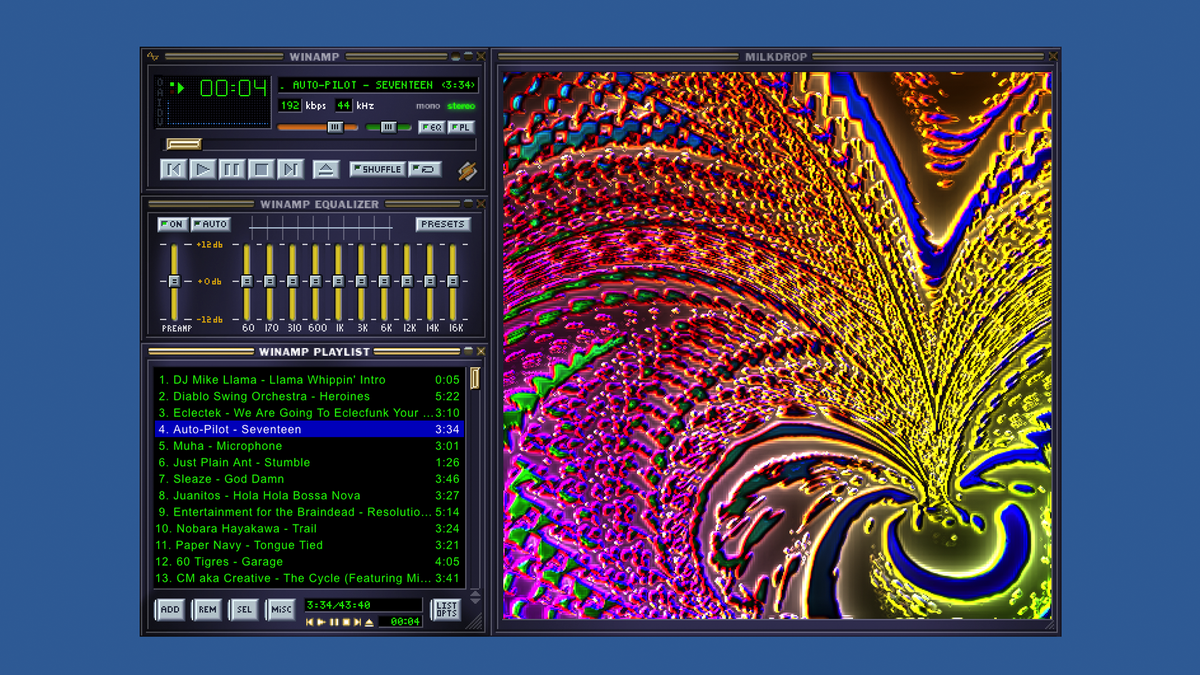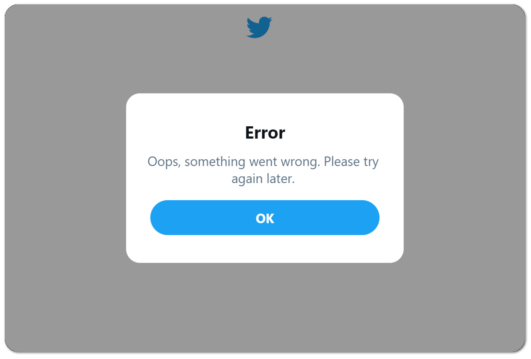The Software Industry is Broken
The dire state of the software industry, leaves us with hopes for a better future. Why we ended up like this?
It’s that time again. You come to your Toyota dealership to buy a new Toyota Corolla. You’ve been waiting to upgrade your old, fuel inefficient and slow model, with this year’s new model. But the new model is more fuel inefficient! Wait! What?!
The evolution of products is very clear. Newer should be better. Better equals more fuel efficient, faster, safer. Otherwise, why would you upgrade? Have you ever heard of your friend bragging about his new fridge, telling you how roomy it is, how it has an RGB light inside, but it uses more electricity? 😦
Or get this. Have you ever heard about a major airline, purchasing a new fleet of Boeing (or Airbus) airplanes, just so they will be less fuel efficient, make your flight longer and the airline needs to rebuild their hub airport because the airplane now can’t taxi to the gate?
No, you haven’t. Because that’s not what progress is. Progress is a process towards better, not worse. You don’t buy a new car to drive slower or pay more for gas.
But you know what? In software, that is what we are doing. I’m writing this article, while Spotify is playing in the background, and a quick look at Activity Monitor reveals Spotify has 6 processes running, with an average of 2.2% of CPU usage, and a combined total of 470MB of memory usage! 470MB!! Winamp uses around 49MB (with a VM size of 60MB) source. And Winamp has visualizations ffs!

Product Segmentation
I’m a developer. I try to have the best machine I can. Max memory, top CPU, best GPU (if I’m working with 3D graphics). We expect it from professionals. The same way professional car drivers try to get the best car; professional mountain bikers own the best bikes; pro photographers get the best camera and lenses.
But every product has segmentation. Some products are entry level, other aim at professionals. You can get a decent DSLR camera or an entry level mountain bicycle. And you can get an entry level PC or aim at a beefy machine with 64GB RAM and Ryzen 9 5900x (should you need that). But while your entry level DSLR will snap exceptional pictures, and your beginners mountain bicycle will get you through beginner singles, your entry level PC will struggle to keep up with basic software like music players or instant messaging.
640K ought to be enough for anybody
It’s Saturday and I’m on my home PC, so I don’t have Slack open, but a quick Google reveals that slack uses at max around 1GB of RAM. Add to it Spotify, a Chrome with few tabs, the OS itself and you’ve maxed out 4GB of RAM easily.
But Slack is a professional tool! - no. No, it’s not. It’s a glorified IM with slightly more features that mIRC. And mIRC uses anywhere between 50MB and 250MB (source). Slack is used in a professional environment, yes, but it does not justify the fact that it eats a good chunk of my memory that I need for my professional work such as an IDE, running compilations and VMs.
We are in an era when software grows way bigger and heavier, but does not add any features or improvements. Spotify, for example, does not have an equalizer, a feature that Winamp does. Instead, it has friend’s activity, so I can see what are my friends listening to, because I have nothing else to do. Games used to be distributed on single CDs, then multiple DVDs and now you need to download tens of gigabytes over network in order to enjoy the last AAA titles. But with the increase in size and memory usage, we also got an increase in quality and visuals. We went all the way from rectangular faces like this:

To near realistic graphics like this:

640k ought to be enough for anybody - is a quote falsely attributed to Bill Gates 1. Although he never said that, and obviously staying within the limits of 640K is not progress, the current status quo is not acceptable! We can’t, and shouldn’t, argument everything with “But RAM is cheap”.
Today’s software gets heavier and ships with fewer features. There is a word for this process in the English dictionary: regress. It turns out that it is the antonym of progress.
Why it happens?
Compared to 20-30 years ago, today software is everywhere. It’s even in your fridge. Think of anything, and high chance it has software in it. And with a significant increase in software availability, a matching demand for software engineers came along.
And as with any factory production line, optimizations were made. New languages were created. From an old and clunky Fortran, where you write code such as:
INTEGER(4) :: i,io_unit
REAL(8) :: pmin
STACK_PUSHAll the way to the new and shiny JavaScript where you write poetry:
request(app)
.delete("/something")
.send()
.expect(400)
.end((err, res) => {
err.should.have.proptery("message").equal.to("Bad Request");
});As something becomes more mainstream, it takes a simpler form. First cars were hard to drive, today you don’t even have to change the gears. Same with software. Back then you had to understand what are registers and how many bits your integers take. Today, everything is dynamic and the compiler or the runtime knows better than you what types to use.
While I struggle with this concept sometimes, because I grew up on understanding the difference between little and big endian; I understand the reasoning behind it. When a specialty tool is being adopted by the masses, it will be simplified to suit everyone as much as possible. As long as the adaptation includes improvements, I’m fine with it. This is progress, and the reason we, as humanity, can enjoy technology in the way we enjoy it.
Creating software today is simpler than ever before, with high level, garbage collected, dynamic languages and block-like programming. And the world of software creation opened a lot of business opportunities. You practically can create anything from nothing.
A personal story
Around the age of 16, I had to choose a specialization in school. Once you reach 9th grade in school, you need to decide what specialization you want to get based on your desire and grades. There were specializations like psychology (focusing less on math and more on literature, psychology and philosophy); robotics (with focus on math and programming, and less on literature or psychology); computer science (with higher focus on math and programming, and less on literature and psychology) and others.
I was torn between robotics and computer science. I was sure it’s going to be the biggest decision of my life (boy, I was wrong). I remember the summer break between 8th and 9th grade, where I was struggling to decide what do I want to do, where do I want to go. I enjoyed creating things by writing code and my major struggle was to decide whether I want to create virtual things like software, or make software create real things like robots.
Programming was already a hobby of mine. And I choose computer science. One of the key factor for my decision was the fact that I come from an immigrant family. We are not poor, but I couldn’t allow myself asking my parents for money to buy resistors, breadboards and soldering station. I’ve already had a computer and knew programming and with that I could create software.
Software production is relatively cheap
My “biggest” life decision boiled down to the fact that I had a PC. The upfront cost of software creation is relatively cheap. You don’t need to buy programming languages like you do with heavy machinery, nor you have to rent an office, like you do with a factory or a warehouse.
And the rewards you can get from software production are massive. We are in a midst of a software revolution, where VC funded startups are being spawned like zombies in Left 4 Dead 2.

Nobody cares
Software surrounds us, and yet, in my opinion, it’s one of the inefficient industries we have. The solution to slow software is to buy more RAM or spin up yet another AWS instance. Ain’t nobody got time to figure out what’s wrong. Optimization became a hated word used by heretics. All our optimization problems are solved by increasing the instance type or instances count. In the end, everybody suffers and nobody really cares.
Users suffer. But they don’t care. They have nothing to do. Their choice is mostly between either using the product or not, or between two different software when neither of them is optimized enough or lack features.
Developers don’t care because it’s too hard to write proper software. It’s too hard to do proper error handling or debugging. They prefer to spend their time in creating FizzBuzz architectures and appearing smart in front of their colleagues during design reviews. And their simple To-Do app is grown to a pile of shitty abstractions that nobody can understand how to debug and optimize.

Business and VCs obviously don’t care as well. They care only about 3-letter-abbreviates such as TTM and ROI. The lower the first and higher the second - the happier they are. Tech debts are being buried beneath piles of optimization bugs that are fixed by occasionally restarting the servers. At least we do a retrospective!
When I type google.com in my browser, my computer issues a network request that, according to traceroute tool, travels between 20 different network hops and takes about 75ms to reach Google servers. 75ms. Let that number sink for a moment. It travels between 20 different routers, most of them are with shitty (compared to your phone, yeah?) 1GHz CPUs and 1GB of RAM, serving millions of requests, via fiber or copper wiring, to a different continent! LET THAT SINK! And yet, it takes few seconds from the moment I open slack till the moment it’s useable, and I have fully spec-ed Mac Mini. 🤯
The future
We had 4KB or RAM when we landed on the moon2, but today it takes 100000 more to send your colleague a message. Yes, RAM is cheap. Yes, machines are powerful. But progress is about doing the best you can. And I’m pretty sure that 400MB IM is not the best we can.
There is beautiful software out there. Efficient, snappy, feature-rich. There are engineers who care about performance, who care about getting the maximum out of the available technology. Not wasting resources. But they are in the minority.
Imagine a world where you can open a software and it’s useable right away. You don’t need to wait for it to load the redundant friend’s activity. It doesn’t have useless features. And it works on your entry level PC. Such a world is possible, and we are responsible for making it.
I encourage everybody to take an action. Refuse to write inefficient software. Demand time for Tech Debts that focus on optimization. Be open-minded and choose the best tool for the problem. Together we can fix the software industry.